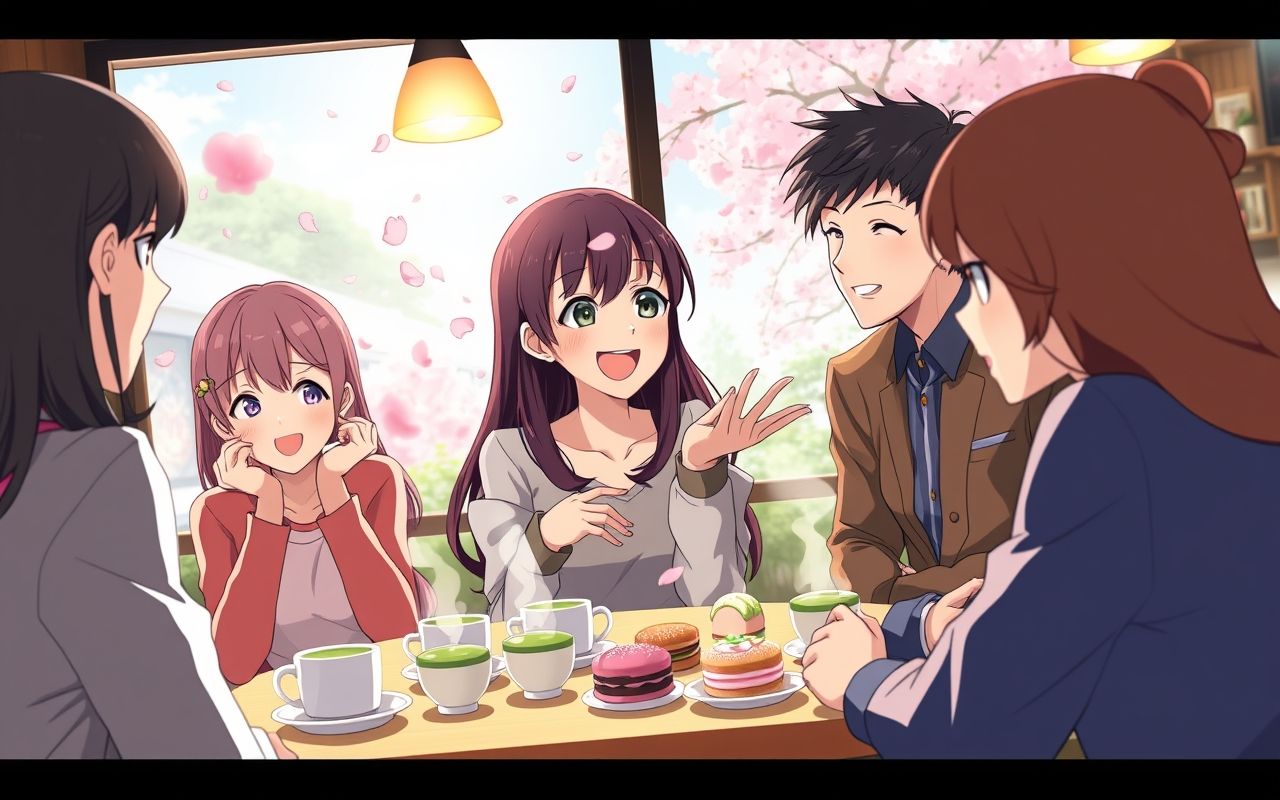
Onomatopoeia: Speak Japanese that's 'alive' and colorful
Onomatopoeia: Speak Japanese that's 'alive' and colorful 🗣️✨
Hello everyone!
As someone who has lived in Japan for over 10 years, I've realized that one of the "secret weapons" to make your Japanese sound less "textbook-like" and more like a native speaker is Onomatopoeia (sound and mimetic words).
Have you ever heard Japanese people say strange-sounding words like ザーザー (zā zā) or ドキドキ (doki doki) and wondered what they mean? That's Onomatopoeia! They're not just for kids or in manga; adults use them EVERY DAY in all kinds of situations.
What's so "magical" about Onomatopoeia?
Japanese divides them into 2 main types:
-
擬音語 (Giongo - Sound-imitating words): Mimic actual sounds.
ワンワン(wan wan): The sound of a dog barking 🐶ザーザー(zā zā): The sound of heavy rain 🌧️ゴロゴロ(goro goro): The sound of thunder rumbling or a stomach growling
-
擬態語 (Gitaigo - Mimetic words): Describe states, feelings, or actions that have no sound.
キラキラ(kira kira): Sparkling, glittering ✨ドキドキ(doki doki): The feeling of a racing heart, nervousness 💓ニコニコ(niko niko): Smiling, beaming 😊
Why you SHOULD use Onomatopoeia?
- Richer in emotion & imagery: Instead of saying
雨が強く降っています(The rain is falling heavily), you can say雨がザーザー降っている(The rain is pouring down). The sentence immediately becomes more vivid with imagery and sound! - Concise and effective communication: Sometimes a single onomatopoeia is enough to describe a complex state.
- Sound more "Western"... oh wait, more "Japanese"! 🇯🇵: This is a sign that you truly understand and are integrated with the Japanese language and culture.
Some real-life examples you can use right away!
Instead of just memorizing, let's see how they are used in sentences:
| Onomatopoeia | Meaning | Real-life example |
|---|---|---|
ヘトヘト (heto heto) | Exhausted, worn out 😫 | 今日は残業でヘトヘトだよ。 (I'm exhausted from working overtime today.) |
ペラペラ (pera pera) | Fluent (in a foreign language) | マリアさんは日本語がペラペラだね。 (Maria is fluent in Japanese.) |
もちもち (mochi mochi) | Chewy, springy (often used for food) 🍞 | このパン、もちもちしていて美味しい! (This bread is chewy and delicious!) |
イライラ (ira ira) | Irritated, annoyed 😠 | 電車が遅れてイライラする。 (I'm irritated because the train is late.) |
ゴロゴロ (goro goro) | Lazing around, doing nothing at home 뒹굴뒹굴 | 休みの日は家でゴロゴロするのが一番だ。 (On days off, lazing around at home is the best.) |
My advice
Don't be afraid to make mistakes! Start by listening to your Japanese colleagues and friends. You'll be surprised how often they use these words.
Choose a few words you like and try using them in simple conversations. Your Japanese will definitely "level up" and become much more natural! 😉
Lan tỏa kiến thức
Chia sẻ những điều hay ho với bạn bè